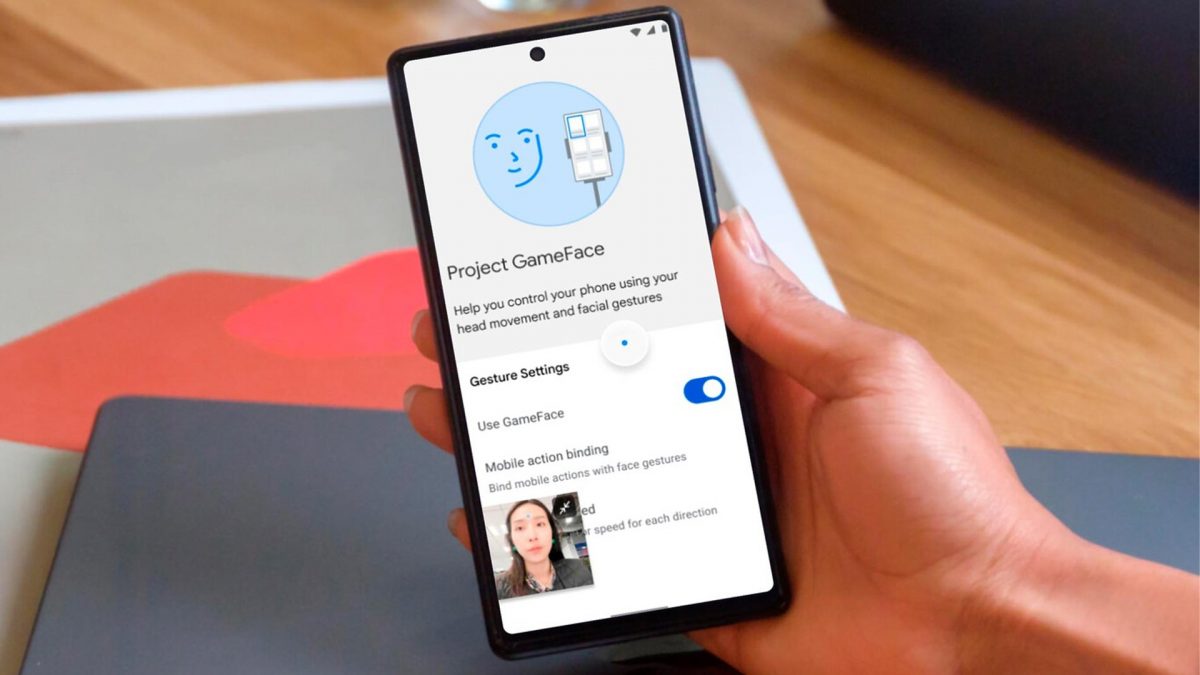Project Gameface operates by using the front camera of a phone to track user’s facial expressions and head movements, enabling them to control a virtual cursor without the need for traditional input devices read more
)
Moreover, users have the flexibility to customize the sensitivity of each gesture, ensuring a personalised and comfortable experience. Image Credit: Google
Following last year’s debut of Project Gameface at the 2023 I/O developer conference, Google, the tech giant has now announced a significant update: the open-sourcing of more code for the innovative hands-free gaming “mouse.” This move empowers developers to integrate Project Gameface technology into Android applications, widening its accessibility and potential impact.
Project Gameface operates by using the front camera of a phone to track user’s facial expressions and head movements, enabling them to control a virtual cursor without the need for traditional input devices. For example, smiling could serve as a “selection” gesture, while raising an eyebrow could trigger a return to the Android home screen. Moreover, users have the flexibility to customize the sensitivity of each gesture, ensuring a personalized and comfortable experience.
This expansion of Project Gameface underscores Google’s commitment to fostering inclusivity and innovation within the tech industry. By providing developers with open-source tools to integrate accessible technology into their applications, Google is driving forward the movement towards a more inclusive digital ecosystem.
Google first introduced its Project Gameface at the I/O 2023 event, which offered an open-source solution to empower users with disabilities. This innovative technology enables control of a computer’s cursor through head movements and facial gestures, revolutionising gaming and everyday tasks.
Inspired by the story of Lance Carr, a quadriplegic video game streamer battling muscular dystrophy, Google partnered with him to develop Project Gameface. Lance’s challenges with traditional mouse control due to muscle weakness sparked the creation of a hands-free alternative.
This technology is a game-changer for people with disabilities, providing them with a new avenue to interact with Android devices.
Guided by three core principles – enhancing accessibility, ensuring affordability, and prioritising user-friendliness – Project Gameface aims to empower users of all abilities.
Google’s collaboration with playAbility and Incluzza has led to the open-sourcing of more code for Project Gameface, enabling developers to integrate the technology into diverse applications. Incluzza, for instance, is exploring the use of Project Gameface in educational and work environments, such as typing messages or job searches.
“We’ve been thrilled to witness companies like playAbility leverage Project Gameface building blocks in their inclusive software. Now, with additional open-sourced code, developers can create Android applications to enhance accessibility,” Google shared in a blog post.
The technology functions by tracking facial expressions and head movements through the device’s camera, translating them into personalised commands. Developers have the flexibility to customise the experience, adjusting gesture sizes, cursor speed, and more to cater to user preferences.
Google has introduced a virtual cursor for Android devices, further expanding Project Gameface’s capabilities. Leveraging MediaPipe’s Face Landmarks Detection API, the cursor aligns with the user’s head movements, while facial expressions trigger actions. With access to 52 face blend shape values, developers can create a diverse range of functions and customisation options.
Overall, Project Gameface signifies Google’s commitment to inclusivity and accessibility in technology. By empowering individuals with disabilities to control devices through natural movements, Google is forging a path toward a more inclusive digital future.

 4 months ago
24
4 months ago
24
)
)
)
)
)
)
)
)
)
)
)
)
)
)
)
)
)
)
)
)
)
)
)
)
 English (US) ·
English (US) ·